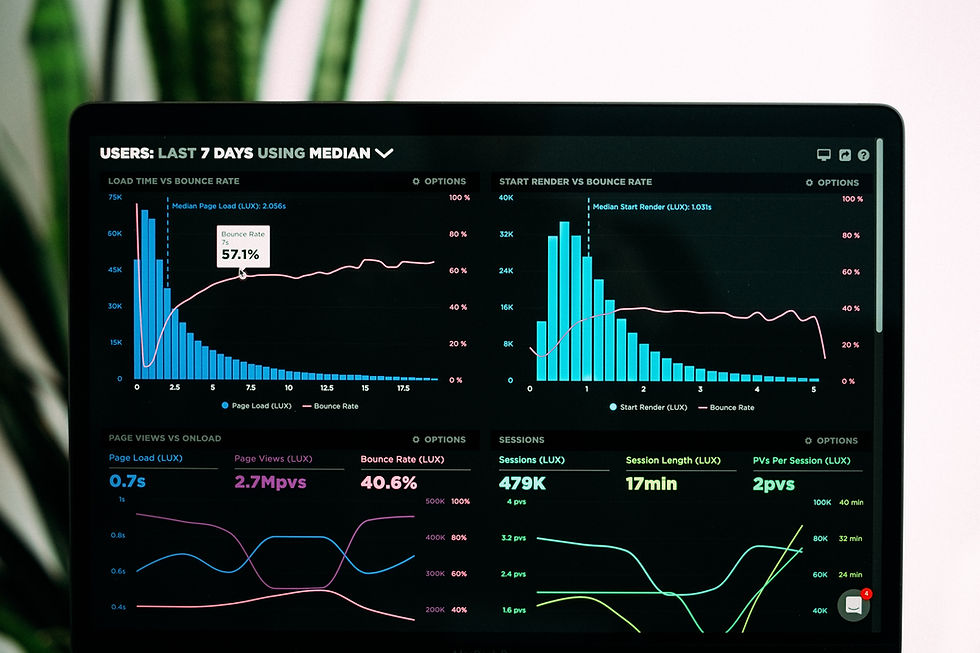Uncovering the Future: 5 Data Engineering Trends Shaping 2025 and Beyond
- Mar 17, 2025
- 3 min read

Organizations continue to embrace digital transformation, and the role of data engineering is evolving rapidly. Data's increasing volume, variety, and velocity demand new approaches to infrastructure, automation, and analytics. Data engineers must adapt to emerging trends defining the field's future to stay ahead. Here are five key trends shaping data engineering in 2025 and beyond.
Rise of Data Products and Data-as-a-Service (DaaS)
The concept of treating data as a product is gaining traction. Organizations are moving beyond traditional data pipelines to structured, reusable data assets that serve multiple use cases across business units. This shift demands:
Data observability and governance to ensure quality and compliance.
Self-service data platforms that empower business users to access and leverage data without heavy IT dependency.
Data contracts and SLAs to define ownership, reliability, and delivery standards for data consumers.
Additionally, Data-as-a-Service (DaaS) makes high-quality, on-demand data available to internal and external stakeholders, enabling more agile decision-making.
The Maturation of AI-Powered Data Engineering
Generative AI and machine learning (ML) are no longer limited to analytics. They are now reshaping data engineering itself. AI-driven automation is streamlining:
Schema evolution and data pipeline optimizations to minimize downtime and improve efficiency.
Automated data wrangling and transformation to reduce manual coding efforts.
Intelligent anomaly detection to enhance data quality and security.
By leveraging AI, data engineers can shift their focus from repetitive tasks to higher-value strategic initiatives.

Adoption of Low-Code and No-Code Data Engineering Tools
The demand for data engineers continues to outpace supply, leading to the rise of low-code and no-code platforms that simplify data pipeline development. These platforms offer:
Drag-and-drop pipeline builders to speed up ETL processes.
Pre-built connectors for cloud services and databases to reduce integration complexity.
AI-assisted query generation for users with limited SQL or programming knowledge.
While these tools won't replace traditional data engineering, they will allow more teams to build and orchestrate data workflows, reducing bottlenecks.
Cloud-Native and Serverless Data Architectures
Cloud adoption is reaching new heights, with organizations prioritizing serverless and cloud-native data engineering solutions. This trend is driven by:
Cost efficiency, as serverless computing, eliminates the need for always-on infrastructure.
Scalability, with dynamic resource allocation based on workload demands.
Managed services, reducing operational overhead while improving reliability.
Platforms like Snowflake, BigQuery, and Databricks are evolving to support serverless models, making it easier for teams to handle massive-scale data workloads efficiently.
The Emergence of Real-Time and Streaming Data Architectures
Batch processing is no longer enough for businesses requiring instant insights. The future of data engineering is real-time, with growing adoption of:
Event-driven architectures using Apache Kafka, Pulsar, and AWS Kinesis.
Stream processing frameworks like Apache Flink and Spark Structured Streaming.
Real-time analytics powering AI-driven decision-making and operational intelligence.
As companies seek faster data processing to drive business outcomes, data engineers must master streaming architectures to stay competitive.

Looking Ahead
Data engineering is undergoing a paradigm shift driven by AI, automation, and evolving business needs. The rise of data products, AI-powered automation, low-code platforms, cloud-native solutions, and real-time data processing will redefine how organizations manage and utilize data. By staying ahead of these trends, data engineers can unlock new opportunities to drive innovation and efficiency in the ever-evolving data landscape.
At Dataengite, we specialize in helping organizations build future-ready data strategies. Contact us to learn how we can help you navigate these trends and optimize your data infrastructure for success.




